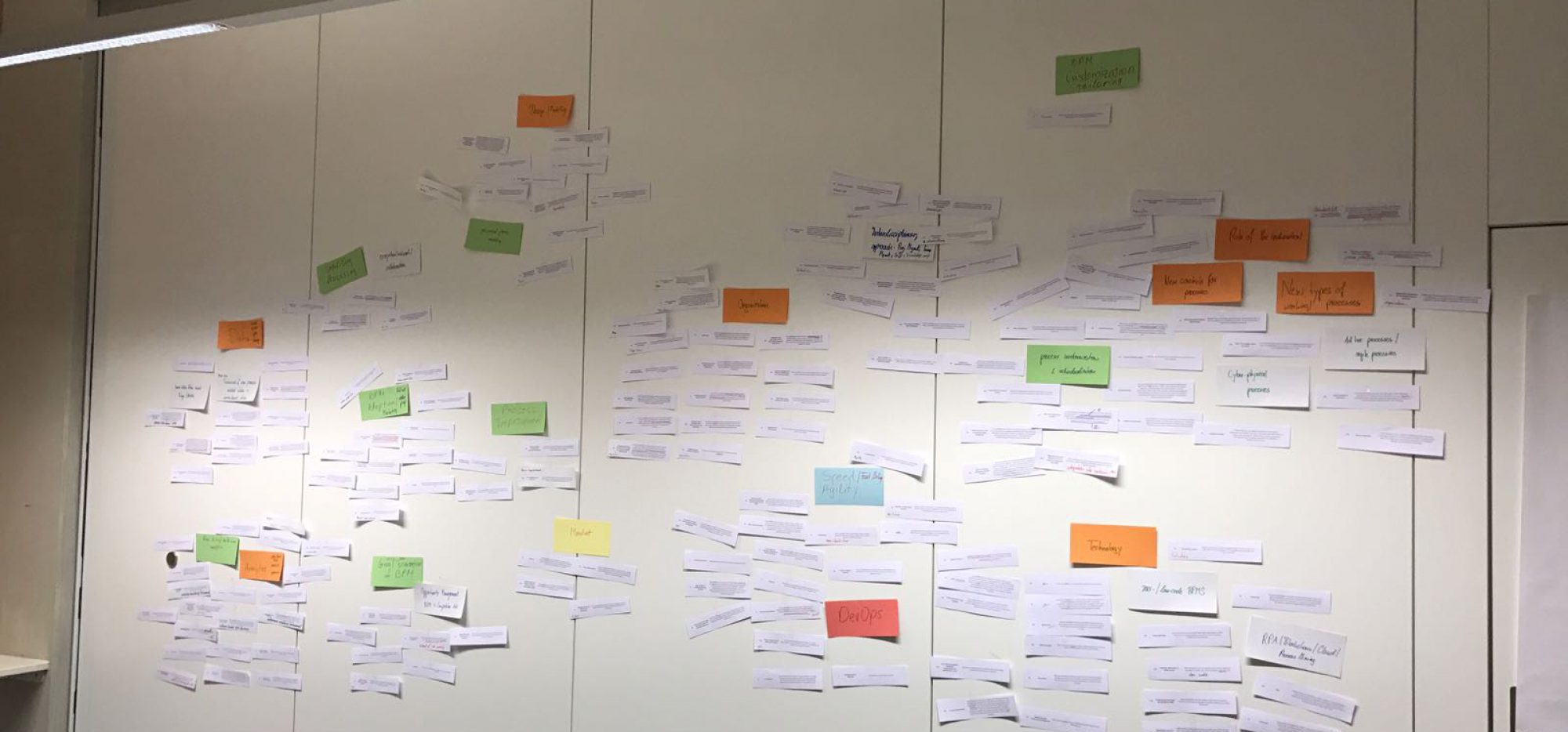BPM in the Digital Age

Business Process Management (BPM) is an established management discipline that strives for the effective and efficient organization of corporate work and involves the identification, design, execution, analysis, improvement of business processes. The role of BPM in structuring and optimizing corporate work is being transformed by the uptake of digitalization, i.e. the penetration of the economy and society by digital technologies such as 3D/4D printing, cognitive computing, blockchain, or the Internet of Things.
Digitalization does not only lead to a hyper-connected, fast-moving, and highly competitive environment, but it also affects work processes at the operational level. Social features such as wikis and community workspaces enable high-performance collaboration among individuals from all over the world while emancipating work from context factors such as time and place. Advanced analytics allows for capitalizing on huge amounts of structured and unstructured data. New modes of automation such as robotic process automation or social robotics have the potential to support highly complex knowledge-intensive tasks as well as swivel-chair routines.
In an effort to explore how BPM should be conceptualized to enable effective and efficient work in the digital age, we performed a Delphi study with 29 renowned BPM experts from industry and academia. The resulting BPM capability framework comprises 30 capability areas structured along the core elements of BPM (i.e., strategic alignment, governance, methods, IT, people, and culture) and offers a holistic view on BPM in the digital age (de Bruin & Rosemann, 2007).
Paper
Kerpedzhiev, G.D., König, U.M., Röglinger, M. et al. An Exploration into Future Business Process Management Capabilities in View of Digitalization. Bus Inf Syst Eng 63, 83–96 (2021). https://doi.org/10.1007/s12599-020-00637-0